Label: Reprise Records (UK), K44174
Style: Rock
Country: United States
Time: 41:19
Format: Flac Tracks 16/44,1 kHz
Size: 247 Mb
Fanny Lives: Inside the Return of the Pioneering All-Female Rock Band
In the face of flagrant sexism, they wowed David Bowie and made history with a major-label signing. Now, the members of Fanny are making a fresh start.
When Deep Purple didn’t show up for a gig once in Ohio in the early Seventies, opening act Fanny went on in their place. “And slammed,” recalls guitarist June Millington. “No one left, which impressed everyone. It was a big deal ’cause, well, you know: girls!”
Four girls, in fact. Formed in 1969, Fanny were the first all-female rock band to release an album on a major label. Yet after successfully filling in for one of the reigning acts of the day, earning critical raves and co-signs from rock royalty, and cracking the Top 40, the band still had to shrug off the dismissive “not bad for chicks” refrain from male admirers who thought they were paying a compliment. (“That was the highest accolade you could get, and we took it,” Millington says.) And in the years since their initial early-Seventies run, the group has been largely overlooked.
“They were one of the finest fucking rock bands of their time,” David Bowie told Rolling Stone of Fanny in 1999. “They were extraordinary: They wrote everything, they played like motherfuckers, they were just colossal and wonderful, and nobody’s ever mentioned them. They’re as important as anybody else who’s ever been, ever; it just wasn’t their time.”
Maybe their time is now. Nearly 45 years after the definitive Fanny lineup broke apart in 1973, Millington, now 69, has fashioned a 21st-century version of the group with her sister and original singer-bassist Jean Millington and singer-drummer Brie Darling. The group calls itself Fanny Walked the Earth, also the title of their recently released LP: a collection of 11 new songs full of big hooks, rich vocal harmonies and raucous guitars.
“They’re flag-bearers – they should be in the front of the parade,” says Bangles guitarist Vicki Peterson, who counts Fanny among her formative influences, and sings on Fanny Walked the Earth. “As a 10-year-old, or 12-year-old, I was thinking, ‘Oh, my God, these women play better than anyone needs to, and play great music and look great and rock with a ferocious spirit.'”
Though the musicians didn’t plan it this way, Fanny’s return seems especially well-timed given the #MeToo and Time’s Up movements, signs of a cultural shift that scarcely seemed imaginable when the Millingtons and Darling came up in the 1960s. At the time, the sisters – who moved from the Philippines to Sacramento, California, in 1961 – felt further marginalized by their immigrant status. “We were not supposed to believe in ourselves,” June Millington says of starting a band as an immigrant and a woman of color. “It really felt like it was warfare: It was sexism and classism at the same time, and we didn’t know whether we were going to make it.”
She describes Fanny Walked the Earth as an amalgam of Fanny and the Svelts, a band the Millington sisters started in high school in the mid-Sixties that included Darling on drums. “Somehow it’s coming full circle,” says Darling, 68. She sang in Fanny during the brief period when the band was a quintet prior to the recording of their 1970 self-titled debut, and returned to sing and play drums on their final album, 1974’s Rock and Roll Survivors. “It couldn’t be better timing. We get to stand up for what we believe in, stand up for women.”
“We’re at the center of the vortex,” adds June Millington. “I think we exemplify it. We are it. I just would not have believed you 50 years ago if you had told me this would be happening now.”
During their initial run, the musicians faced constant discrimination. “There were so many instances of egregious sexism that our minds automatically deleted them, needing the head space to learn and do our work,” Millington says. “It wasn’t worth paying attention to. You may as well have been paying attention to all the holes in the road.”
There was the time in England where a club owner showed them around backstage. “He said, ‘Here’s the room for the girls,’ and, pointing the other way, said, ‘Here’s the room for the band,'” Millington recalls. Or the time when the manager at the Troubadour in L.A. gave the group five minutes to play at a Hoot Night. After a couple of songs, “The audience was standing on the tables stamping, hooting and hollering,” the guitarist says. “The manager came running up and said, ‘Play some more! Play some more!’ Jean slowly looked down her long neck at him and said, ‘But you said, “only five minutes.”‘ Of course, we played some more, and even harder. We were definitely gonna show them. It was a peak moment, because we delivered.”
Their determination paid off: the audience that night included the secretary for producer Richard Perry, known for his work with Barbra Streisand, Carly Simon and Harry Nilsson. She arranged a private audition with Perry the next day, and Reprise signed Fanny soon after.
The group’s quasi-reunion stems from a February 2016 tribute concert held in June Millington’s honor in Northampton, Massachusetts, near the small town where she has lived since 2001. There, she and her partner run the Institute for the Musical Arts, which holds rock camps for teen girls. The event featured friends and collaborators, including Jean Millington and Darling, playing music from throughout June’s career. The sisters had occasionally recorded and performed together as a duo but the tribute was the first time they had played with Darling in 35 years.
“When we were rehearsing and we hit it, we were like, ‘Holy shit, it’s back, and it’s better,'” says June Millington. “Whatever it was that we were accessing in 1967 when Brie started playing in the Svelts was still there.”
“There were so many instances of egregious sexism that our minds automatically deleted them, needing the head space to learn and do our work.” –June Millington.
Playing in the Svelts provided a sense of community for the Millingtons and Darling, all daughters of white American fathers and Filipina mothers. After the Svelts broke up, the Millingtons joined drummer Alice de Buhr and keyboardist Nickey Barclay in another all-female group, Wild Honey, which evolved into Fanny when the band signed with Reprise. “I remember being terribly excited and also confident, because we’d already worked so hard for four years, with different girls coming in and out of the band, and we could play,” Millington says of the time.
Emphasizing tight vocal harmonies and the potent blend of Barclay’s bluesy keyboards and Millington’s fiery guitar playing, Fanny played with confident rock & roll swagger: Their first album included a searing cover of Cream’s “Badge,” and they had a Top 40 hit with the loping boogie workout “Charity Ball,” the title track from their second album. The band hit the road hard, touring internationally and opening for groups including the Kinks, Slade, Jethro Tull and Humble Pie.
Yet large-scale commercial success eluded them, and the weight of representing women in the male-dominated rock world began to wear on the musicians, particularly June Millington. “It wasn’t just the pressure,” she says. “It was the psychic and emotional energy you had to expend to prove over and over that you could play as good as guys, or in a lot of cases, better.”
It was more than Millington could manage, and she left the band following the 1973 release of Fanny’s fourth album, Mother’s Pride (produced by Todd Rundgren). When De Buhr also departed, Darling rejoined Fanny, and the band brought on Patti Quatro, older sister of Suzi, to play lead guitar and sing. That lineup recorded Rock and Roll Survivors, which yielded “Butter Boy,” a doo-wop–style tune that became their biggest hit, peaking at Number 29. By then, though, the musicians were at odds over creative issues, and the group disintegrated.
Most of the band members stayed active in music after Fanny. Darling performed with Ringo Starr, Carole King, Electric Light Orchestra and Jimmy Buffett, among others. Jean Millington, 68, has played on and off with her sister, and is currently recovering from a stroke she suffered in January. June Millington played on and produced albums by artists including Cris Williamson and Holly Near, who helped define a feminist and queer-friendly alternative to the mainstream music industry. Nearly 30 years went by before June Millington could bring herself to even listen to Fanny, which she finally did while working on the band’s 2002 compilation First Time in a Long Time. “It was too scary,” she says. “There were too many hard memories.”
The memories linger enough that when the 2016 tribute concert led to an offer for Fanny to make a new record, Millington insisted the musicians do it under a different name. “I have no attraction to competing with our 23-, 24-, 25-year-old selves,” she says. “I think that’s crazy. For us to be nostalgic about the past, there’s no point. Look at where we are now: We’re in an exalted state, doing what we do and being who we are.”
The Millingtons and Darling recorded Fanny Walked the Earth in Western Massachusetts and Los Angeles, with contributions from former Fanny members De Buhr and Quatro. They also enlisted some of the musicians Fanny influenced: Members of the Go-Go’s, the Runaways and all three current Bangles sing backing vocals on “When We Need Her,” an all-for-one celebration of sisterhood. “It just resonates for them to be stepping forward again,” the Bangles’ Peterson says. “They didn’t get the shot they maybe should have gotten in the past. I would like young women who are picking up guitars now and looking to other female musicians to realize, hey, this is a tradition and it’s been going on for a long time, and it’s powerful.”
For June Millington, there’s one more barrier to break. “Back then, we were directly facing sexism. Now I feel like it’s ageism that we’re addressing in a way,” she says. “Women in their sixties aren’t supposed to do this, are they? We’re resisting the normalization of giving up the second your looks start to morph.”
(rollingstone.com; By ERIC R DANTON; MARCH 16, 2018 2:00PM ET)
Jean Millington: bass guitar, vocals
June Millington: guitar, vocals
Nickey Barclay: keyboards, vocals
Alice de Buhr: drums, vocals
Matrix side A: K 44174 AI, K 44174 BI
01. A1 Ain't That Peculiar (04:01)
02. A2 Knock On My Door (03:19)
03. A3 Blind Alley (04:29)
04. A4 You've Got A Home (03:45)
05. A5 Wonderful Feeling (03:15)
06. A6 Borrowed Time (03:28)
07. B1 Hey Bulldog (03:50)
08. B2 Think About The Children (04:08)
09. B3 Rock Bottom Blues (03:06)
10. B4 Sound And The Fury (03:03)
11. B5 The First Time (04:49)
Listen. Full Album: Fanny - Fanny Hill (1972) Vinyl Rip
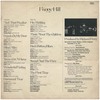
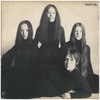
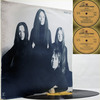
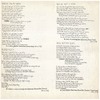
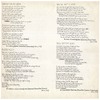

Download: Mega4up Up-4ever UploadRar TurboBit KatFile YandexDisk

No comments:
Post a Comment